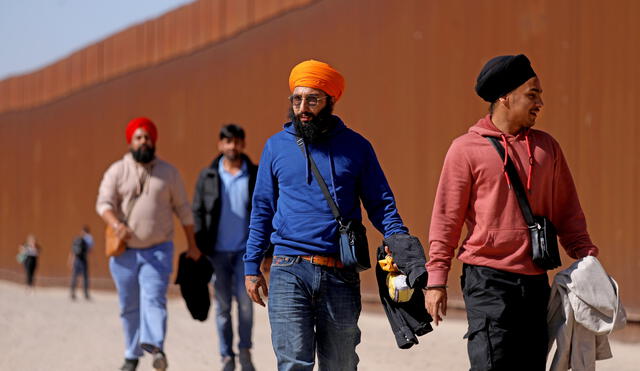More than 100 undocumented migrants deported from the US to India ahead of Trump-Modi meeting
In a historic move, the U.S. deported 104 Indian migrants using a military aircraft, marking a shift in immigration policy. The deportation, carried out before a scheduled Trump-Modi meeting, highlights growing cooperation on migration issues.

In an unprecedented move, a U.S. military plane transported 104 deported Indian migrants, landing in Amritsar, India. This action comes ahead of a scheduled meeting between President Donald Trump and Prime Minister Narendra Modi in Washington. The deportees, originally from several Indian states, had entered the U.S. illegally in recent years.
The use of a military aircraft for deportations marks a new strategy in the Trump administration's immigration agenda. This is reportedly the first time a military aircraft has been used to deport illegal immigrants to India, and represents the longest distance travelled on deportation flights of this type. Indian authorities have been cooperative, accepting deportees after verifying their nationality.

ALSO SEE: Impact of deporting undocumented Peruvian parents in the U.S.: Consequences for their children
U.S. uses military aircraft to deport over 100 Indian migrants
In a significant move, the United States deported 104 undocumented Indian migrants on a military aircraft, which landed in Amritsar, India. This marks an unprecedented use of military transport for repatriation, signaling a more stringent approach to immigration enforcement.
The deportation took place just days before a scheduled meeting between U.S. President, Donald Trump, and Indian Prime Minister, Narendra Modi, in Washington. The timing suggests that immigration issues, particularly concerning Indian migrants in the U.S., may be a key discussion point between the two leaders.

Trump-Modi meeting. Photo: India Today.
U.S.-India cooperation on immigration policy
The deportation operation underscores the increasing collaboration between the U.S. and India on migration control. U.S. Secretary of State, Marco Rubio, has emphasized the importance of working closely with India to address irregular migration and repatriation procedures.
The Indian government has also expressed a willingness to accept deported citizens, provided their nationality is verified. This cooperation is seen as a step toward strengthening diplomatic ties while addressing the challenges posed by undocumented migration.
Reactions and future implications for both nations
The mass deportation has sparked varied reactions in India, particularly in states heavily impacted by migration. Local authorities are assessing the social and economic impact of returning deportees, while families of affected migrants express concerns about reintegration.
As the Trump-Modi meeting approaches, analysts expect immigration policies to be a focal point of discussion. Observers are closely monitoring whether this deportation signals a long-term shift in U.S. migration policies toward India and what it could mean for future repatriation efforts.